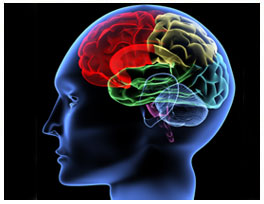
What is Neurofeedback? Neurofeedback is biofeedback for the brain by which the brain learns to function more efficiently. Simply put, it exercises and helps “strengthen” the brain, calms it,and improves its stability. Using computerized feedback, the brain learns to increase certain brainwaves that are helpful for improved function. The brain can decrease excessive fast or slow brainwaves that interfere with good function.
Is it Covered by Insurance? At Emmaus we use neurofeedback in conjunction with psychotherapy in our sessions which is covered under most plans. However, we recommend that you check with your insurance carrier for your benefit coverage.
What Conditions Can It Help? Originally, Neurofeedback was used for seizure disorders and then expanded as a treatment for ADHD and ADD to improve attention, focus and concentration. As the field has grown, it is being used for a growing list of conditions that affect both children and adults.
“Neurofeedback is a brain exercise. We are exercising the brain’s ability to self-regulate.” – Sue Othmer, BCIAC
The following is a partial list of conditions Neurofeedback has effectively treated:
| ADD/ADHD Adjustment Issues Anxiety Attachment Issues Autism Chronic Fatigue Chronic Pain Depression Insomnia Learning Disabilities | OCD Panic Disorders PTSD Social Anxiety Sleep Disorders Tics Trauma Traumatic Brain Injuries |
Over time, the results are a healthier and better regulated brain.
